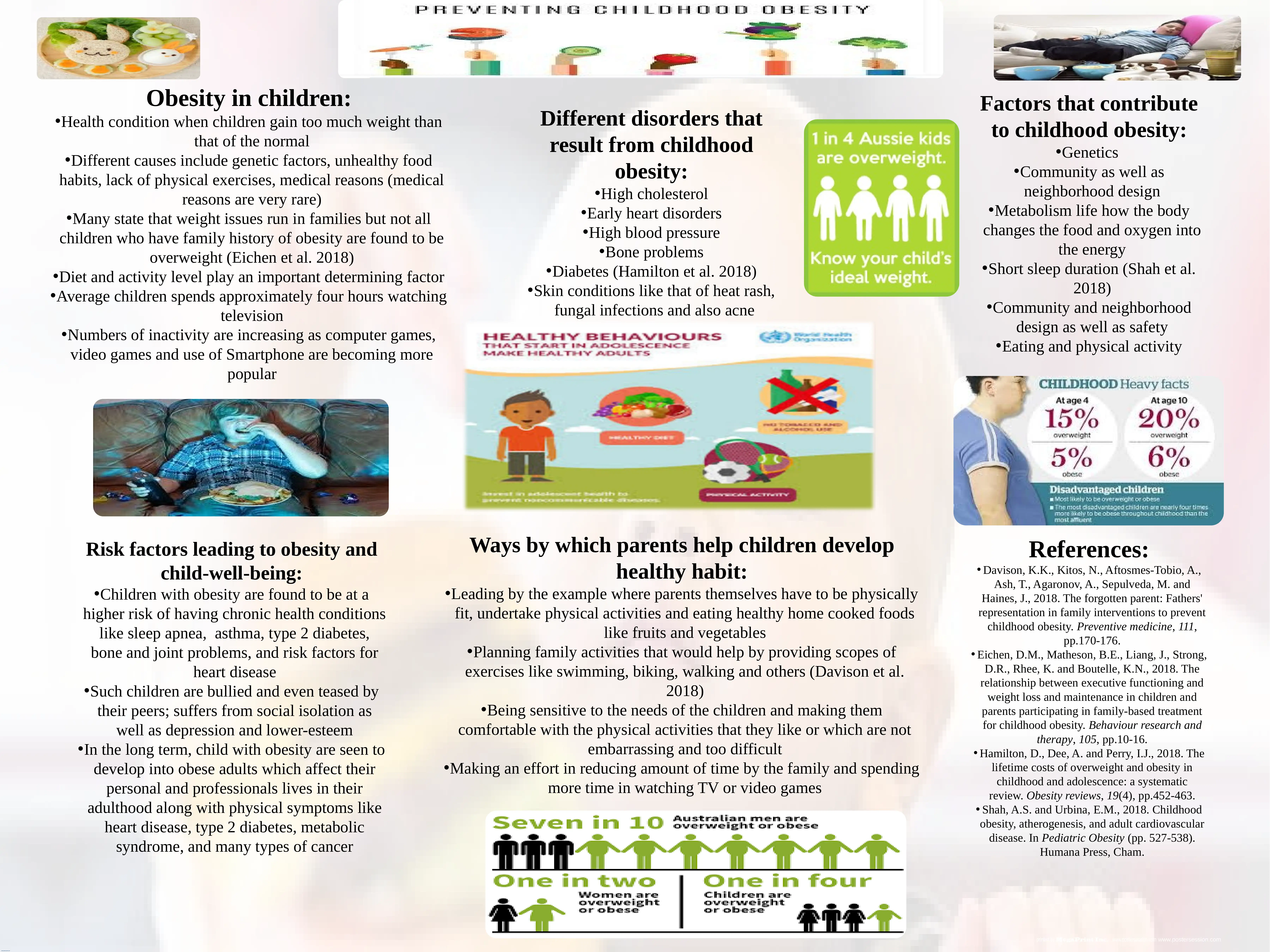Childhood Obesity Report: Health Issue Analysis and Promotion
VerifiedAdded on 2023/01/18
|1
|631
|31
Report
AI Summary
This report delves into the multifaceted issue of childhood obesity, examining its significance as a growing health concern and its profound impact on individuals, families, and the broader community. The report explores the various causes of childhood obesity, including genetic factors, unhealthy dietary habits, lack of physical activity, and the increasing prevalence of sedentary behaviors like excessive screen time and video game usage. It highlights the significant health risks associated with childhood obesity, such as chronic conditions like type 2 diabetes, cardiovascular issues, and psychological challenges like social isolation and depression. The report also investigates the relationship between childhood obesity and the Australian National Health Priorities, as well as three key social determinants of health. Furthermore, it examines the application of an upstreaming approach to nursing care in addressing this health issue. Finally, the report culminates in the development of a health promotion pamphlet designed to encourage healthy habits and practices for those affected by childhood obesity, supported by evidence-based research and relevant references.






![[object Object]](/_next/static/media/star-bottom.7253800d.svg)